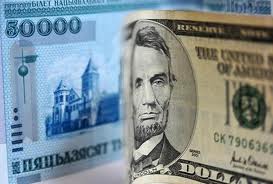

On 16 February 2016, President Alexander Lukashenka announced zero tolerance for structural reforms being proposed by the government. Meanwhile, since the beginning of 2015 state debt has increased by more than half and real wages in dollar equivalent have fallen...

On 27 October, the Belarusian statistical office released revised GDP data. The government actually bets on a quick revival of the economy and bails-out some firms and industries through expanding its own debt. However, this in turn creates a potential...

On 22 August, the state-run news agency Belta reported that “based on the principle of humanism” the President of Belarus decided to pardon and release from prison former presidential candidate Mikalaj Statkevich and five other opposition figures. Lukashenka is trying...

The Belarusian head of state continues to raise his profile in the West, most recently in an interview with a major western press outlet. In the interview Lukashenka snubs Putin and says that a repeat of the events in...

Belarus's GDP growth managed to strengthen in November. But despite this, many signals about an upcoming downturn have appeared. The Russian economic contagion began to spread to Belarus through trade and informational channels. The government reacted by introducing a de-facto...

The growth rate of inflation in the 1st quarter of 2014 amounted to 6.6% and made plans for reaching the official targets for annual inflation highly unlikely. Despite this, a gradual reduction in refinancing rates with a second round of cuts has been preserved. It was...

The official forecasts for socio-economic development in 2014 is as conservative as it has ever been: the projected GDP growth is only 3.3%. International organisations and independent forecasters are even less optimistic. The economic authorities' plans for...

According to official forecasts, an improved climate for foreign trade and accelerated economic growth await Belarus in 2014. The growth of the country's negative trade balance in 2013 created additional pressure on the foreign exchange market and the dynamics of its foreign reserves. Improving...

Over the recent months the rate of economic growth in Belarus has been gradually declining. For eleven months the GDP grew only by 0.9%. A decline in industrial production had a detrimental effect on economic growth. Despite the decrease in...

Slow economic growth, inefficient capital accumulation and the steady outflow of its labour force from Belarus became the hottest topics at the Kastrychnicki Economic Forum (KEF) held on 5 November in Minsk. For many years authorities responded to the criticism toward the Belarusian economic model...

In August and September, the general public's attention was focused on the dispute between Belaruskali and Uralkali, the world's two largest producers of potash fertilisers. The conflict between two economic entities created additional difficulties for the Belarusian potash industry, as well as...

Events that unfolded in June brought about new challenges for the development of the business environment in Belarus. Possible changes to the law on privatisation will impact the attractiveness of state assets and raise concerns regarding the level of property...

Belarusians in their modern history saw two major economic crises. The first followed the collapse of the Soviet Union in early 1990s and the second was in 2011 when many thought the Belarusian economy would crumble. The 2011 currency crisis and inflation dramatically changed well-being of Belarusians. Consumer...

International agency Standard&Poors in April increased Belarus' credit rating from B- (negative) to B (stable). The agency i observed the signs of financial stabilisation in Belarus economy. Although inflation is still very high, it began to slow down, the...

